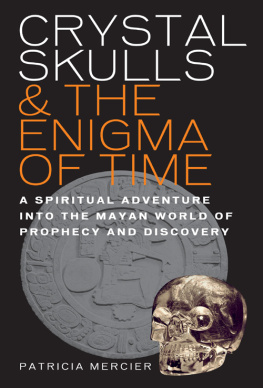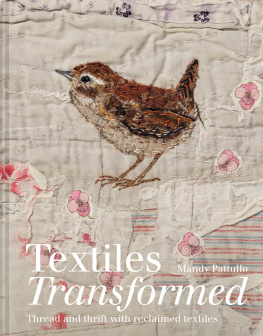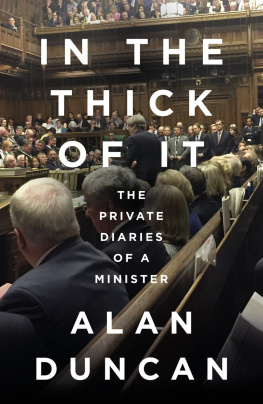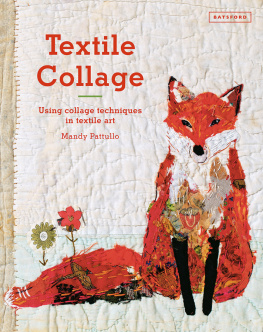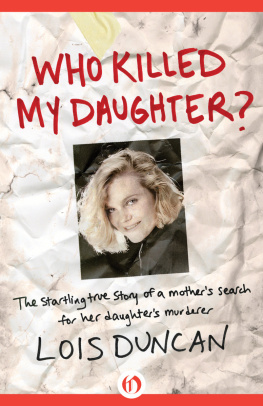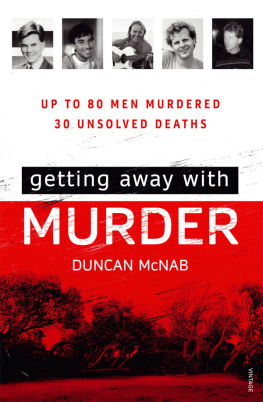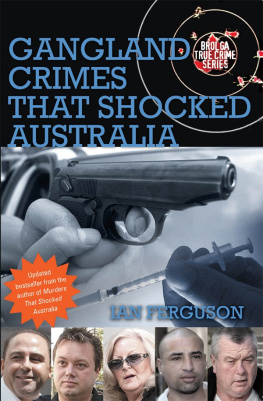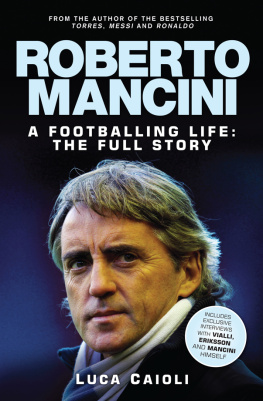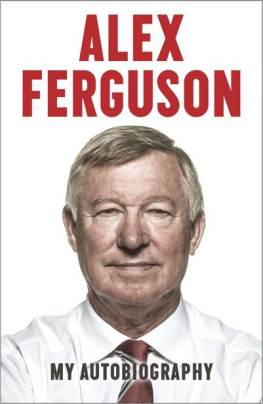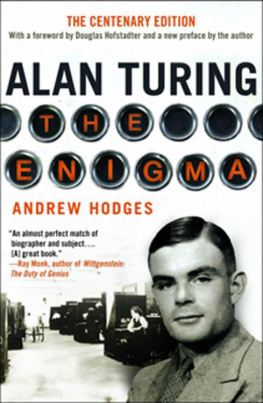Alan Pattullo - In Search of Duncan Ferguson: The Life and Crimes of a Footballing Enigma
Here you can read online Alan Pattullo - In Search of Duncan Ferguson: The Life and Crimes of a Footballing Enigma full text of the book (entire story) in english for free. Download pdf and epub, get meaning, cover and reviews about this ebook. year: 2014, publisher: Random House, genre: Detective and thriller. Description of the work, (preface) as well as reviews are available. Best literature library LitArk.com created for fans of good reading and offers a wide selection of genres:
Romance novel
Science fiction
Adventure
Detective
Science
History
Home and family
Prose
Art
Politics
Computer
Non-fiction
Religion
Business
Children
Humor
Choose a favorite category and find really read worthwhile books. Enjoy immersion in the world of imagination, feel the emotions of the characters or learn something new for yourself, make an fascinating discovery.

- Book:In Search of Duncan Ferguson: The Life and Crimes of a Footballing Enigma
- Author:
- Publisher:Random House
- Genre:
- Year:2014
- Rating:5 / 5
- Favourites:Add to favourites
- Your mark:
- 100
- 1
- 2
- 3
- 4
- 5
In Search of Duncan Ferguson: The Life and Crimes of a Footballing Enigma: summary, description and annotation
We offer to read an annotation, description, summary or preface (depends on what the author of the book "In Search of Duncan Ferguson: The Life and Crimes of a Footballing Enigma" wrote himself). If you haven't found the necessary information about the book — write in the comments, we will try to find it.
Alan Pattullo: author's other books
Who wrote In Search of Duncan Ferguson: The Life and Crimes of a Footballing Enigma? Find out the surname, the name of the author of the book and a list of all author's works by series.
In Search of Duncan Ferguson: The Life and Crimes of a Footballing Enigma — read online for free the complete book (whole text) full work
Below is the text of the book, divided by pages. System saving the place of the last page read, allows you to conveniently read the book "In Search of Duncan Ferguson: The Life and Crimes of a Footballing Enigma" online for free, without having to search again every time where you left off. Put a bookmark, and you can go to the page where you finished reading at any time.
Font size:
Interval:
Bookmark:
He was one of the hardest, most controversial footballers of his generation: the 20m man who became the first professional player to go to jail for an offence committed on the field of play. He was the fans hero who disappeared.
Duncan Ferguson was an old-fashioned Scottish centre-forward who went from a boarding house in Dundee to the marble staircase of Rangers in a record-breaking transfer.
His 4m move from Dundee United to Ibrox made him British footballs most expensive native player. But he would also become one of the most notorious footballers in the land. Sent to prison after head-butting an opponent during a Scottish Premier Division match between Rangers and Raith Rovers, Ferguson made history all over again.
He served half of a three-month sentence in Glasgows infamous Barlinnie Prison. A twelve-match ban from the Scottish Football Association was later overturned following a long appeal process. Bruised by the experience, he turned his back on Scotlands national team and the media.
Ferguson reaped the riches of the Sky era. He was a folk hero at Everton, where he spent ten years either side of an injury-hit spell at Newcastle United. Although the game made him a millionaire, he rejected its new culture of celebrity and remained a fiery figure, racking up a Premiership record of eight red cards. And then, after scoring in the final minute of the last game of his career, he turned his back on football completely or so it seemed.
Contents

To my mum and dad, for unstinting support and belief,
and, above all else, their love.
And to Nathalie, who arrived to save the day.
The entry in my notebook confirms that work on this book began as long ago as 12 June 2008, when the search for Duncan Ferguson led me first to Jim McLeans house in Broughty Ferry, a suburb in Dundee. It hardly requires saying that in what has been a lengthy process there are a lot of people I need to thank for their help, guidance and support. Many, I suspect, might well have forgotten in what way they contributed, while in some cases these thanks have come too late.
It is very poignant to listen back to some old interview tapes and hear voices from beyond the grave. Without George Skelton and Dick Taylors recollections, the chapters on Duncan Fergusons early years would have been greatly diminished, while Jim Farry, the former chief executive of the Scottish Football Association, also passed away shortly after I spoke with him, at a much-too-young age of 56.
With regards to the many others who have helped, it is perhaps easier to break them down into phases of Duncans life, but even then the list is by no means exhaustive.
Stirling/early years: Iain McMenemy, Stan Collins, Gary Stewart, Alex Smith, David Halcrow, Willie McIlvaney.
Dundee United: Michael ONeill, Ray McKinnon, Paul Sturrock, Dave Bowman, Grant Johnson, Jim McLean, Graeme Liveston, Spence Anderson, Christian Dailly, Maurice Malpas, Jim McInally, Alex Cleland, Tam McMillan, Paul Hegarty, Fionan Lynch.
Scotland: Craig Brown, Pat Nevin, Craig Levein, Nicky Walker, Scott Booth, Andy Roxburgh, Berti Vogts, David Findlay, Brian Irvine, Jock Brown, Tom Boyd, Alan McLaren, John Robertson, Alex McLeish, Darryl Broadfoot.
Anstruther hotel-bar incident: Frank Downie.
Rangers: Ally McCoist, Walter Smith, Ian Durrant, Fraser Wishart, Sir David Murray, Mark Hateley, John Brown.
Headbutt/court case: Jock McStay, Jimmy Nicholl, Sandy Eccles, Kenny Clark, Donald Findlay, Eric McCowat, Richard Elias.
Newcastle: Steven Caldwell, Stephen Glass, Ruud Gullit, Paul Robinson, Paul Ferris.
Prison: David McCue, Roger Houchin, Bill McKinlay, Willie McGurk, Willie McBride, Willie Hendry, Dr Andrew McLellan, David Graham Scott.
Pigeons: Michael Lakin
Media and press: Fraser Mackie, Gordon Waddell, Keith Jackson, Ronnie Cully, Stephen Halliday, David Leslie, Stephen McGowan, Brian Marjoribanks, Hugh MacDonald, Michael Grant, Dave Prentice, Phil McNulty, Patrick Barclay, Peter Rundo, Dave Cottrell, Paul Joyce, Alan Oliver, Justin Slee, Bill Borrows, Andy Hunter, Alan Myers, Gary Ralston, Jonathan Northcroft, Douglas Alexander, Stewart Weir, Paul Forsyth, Andrew Smith, Stuart Cosgrove, Colin Duncan, Aidan Smith, Jim Black, Simon Pia, Archie MacGregor, Paul Burns.
Everton: Darren Griffiths, Becky Tallentire, Ian Ross, Alan Myers, David Harrison, Howard Kendall, Joe Royle, Graeme Sharp, Alan Irvine, Mike Walker, Mark Ward, Mick Rathbone, Steve Jones, David Weir, Kevin Kilbane, Steve Simonsen, Bill Kenwright, Peter Johnson, Neville Southall.
A.L. Kennedy has described the process of writing a book as being a tiny bit like having a long-term illness: people enquire after it and your relation to it for the first few months, and then they dont not unless theyre rather peculiar and/or enjoy the discomfort of others. Thank you to those who stopped enquiring about my progress, probably out of sympathy.
Special appreciation:
Without Jim McLeans cooperation, the book would have been a non-starter. He was a colossus in football management with Dundee United, something, as a Dundee fan, I know to my cost. His input runs throughout the book.
Osmo Taipo Everton Raihala and Maria Puusaari made significant contributions to the text and provided kind hospitality in Helsinki.
Kenny MacDonald and Gordon Parks should be included in the press/media mentions above, but they went above and beyond. Again, there might not be a book without them.
Graham Bean and Colin Leslie, sports editors at Scotland on Sunday and The Scotsman respectively, for patience and for granting a sabbatical request.
Donald Walker, my former sports editor at The Scotsman, who was there to witness Duncan Fergusons first senior goal, as well as his first Everton red card, was a constant source of inspiration, and guidance, and has helped me from day one, reading and re-reading, and having the graciousness to pretend his patience was not being completely exhausted. He also sent me on my first Duncan Ferguson assignment in November 1998, to cover his sudden transfer from Everton to Newcastle United. That trip set in motion this book.
David McCue, whose hospitality at his lovely home in Fife was so appreciated, particularly since he also proved such a credible source of information about Barlinnie prison, a place I knew little about before researching this book.
Mark Stanton, my agent, for guidance and reassurance, and Colin McLear, for feedback and constructive criticism. Neil Forsyth, for advice and encouragement back in the beginning. To Emma Vinnie, my sisters Katie and Rosanne, and my extended family, and all others who got burned by the project, thank you, too, for patience and support.
Martin Greig and Neil White, who sought to give me the benefit of their wisdom when it comes to writing sports books. I only hope I have been able to offer something of worth and interest in return.
Ian Preece, Karyn Millar and Debs Warner for sterling editing work and patience beyond what could be expected.
Richard Moore, who encouraged me to begin searching and then kept my spirits up on innumerable occasions when it felt like the journey had reached a dead end, who read and re-read chapters and was there right to the very end.
And of course Duncan Ferguson, an often misunderstood footballer who I felt deserved another hearing.
The one who stands here proven after all.
From the poem Dundee by John Burnside
Glasgow, 24 November 1995
Font size:
Interval:
Bookmark:
Similar books «In Search of Duncan Ferguson: The Life and Crimes of a Footballing Enigma»
Look at similar books to In Search of Duncan Ferguson: The Life and Crimes of a Footballing Enigma. We have selected literature similar in name and meaning in the hope of providing readers with more options to find new, interesting, not yet read works.
Discussion, reviews of the book In Search of Duncan Ferguson: The Life and Crimes of a Footballing Enigma and just readers' own opinions. Leave your comments, write what you think about the work, its meaning or the main characters. Specify what exactly you liked and what you didn't like, and why you think so.

